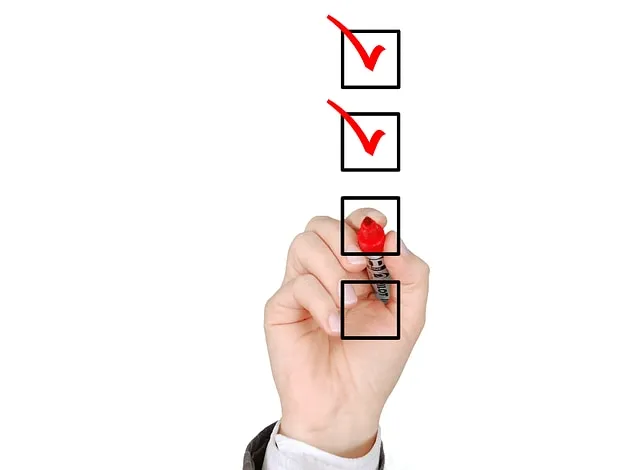How to introduce yourself in Japanese! 5 tips for leaving a good impression and example sentences for different situations.

Encounters in Japan begin with self-introductions. This is a very important opportunity for the other person to remember your face and name. Your choice of words and behavior during self-introductions will greatly affect the impression you make on the other person.
In this article, we will explain in simple terms how to introduce yourself to foreigners in Japan to make a good impression, useful tips, and example sentences for different situations.
▼Goandup Picks Click here for recommended articles!
- Required before studying abroad! Goandup Nihongo+, an online Japanese language learning service
- This page introduces services for foreigners who wish to study in Japan or improve their Japanese language skills to learn Japanese online.
- Goandup Salon" community for foreigners living in Japan
- We introduce an online community where foreigners living in Japan can exchange information and interact with each other to support their life in Japan.
- Goandup Study" supports foreigners who want to study in Japan.
- This section introduces study abroad support services that provide comprehensive support to foreigners who wish to study in Japan, from preparation for study abroad to living in Japan.
- Where can I buy a prepaid SIM in Japan? Recommended SIM cards for foreigners are also introduced.
- How to purchase a prepaid SIM and suitable SIM cards for foreigners.
- The Complete Guide to Pocket Wi-Fi in Japan for Foreigners!
- We introduce how to select and recommend pocket Wi-Fi products that can be used conveniently in Japan.
- The Complete Guide to Finding a Job in Japan! Finding a job, changing jobs, and part-time work for foreigners
- This site provides foreigners who want to work in Japan with comprehensive information on how to find a job, recommended job sites, and other information necessary to find a job.
What is self-introduction (jikosyoukai)?

Self-introduction is the process of introducing yourself to someone you are meeting for the first time. A basic self-introduction begins with a greeting, introduces your name and where you are from, and ends with a bow.
If you are able to make a good impression by introducing yourself and getting others to know your face and name, you have successfully introduced yourself.
Even if you are not fluent in Japanese or are studying Japanese, you will be remembered and make a good impression on Japanese people if you introduce yourself in Japanese rather than speaking in your native language.
Even in other countries, people introduce themselves to new acquaintances, but because of differences in customs and culture, it is best to learn how to introduce oneself in Japan.
5 tips for introducing yourself (jikosyoukai) to make a good impression

The following five points will help you make a good impression on others when introducing yourself in Japan.
- Look up and smile.
- Easy-to-hear speaking voice and speed.
- Look them in the eye with correct posture, hands to the side.
- In about a minute.
- Best to bow, not shake hands.
1. face up and smile
When introducing yourself, it is extremely important to smile and look up when you speak. If you keep your face down, you miss the opportunity to make others remember you. Furthermore, a lack of facial expression can give the impression of unkindness.
Even if your Japanese is not good, you can make a good impression on others if you can introduce yourself with a smile on your face.
2. with an easy-to-understand speaking voice and speed
It is also important to introduce yourself at a volume and speed that is easily audible. Try to speak clearly, especially in situations where there are many listeners.
Also, many Japanese are not good at hearing foreign names, so it is kind to say their names slowly.
3. look the other person in the eye with correct posture and hands in the visible position
When introducing yourself, make sure to speak with the correct posture and look the other person in the eye. Also, do not cross your hands behind your back during self-introductions. If you introduce yourself without looking the other person in the eye, you may be judged as having poor communication skills.
In addition, folding one's hands behind one's back makes one look pompous, so when introducing oneself in Japan, men should put their hands to the side and women should put their hands together in front of them to make a good impression on the other person.
4. in about 1 minute
The basic principle of self-introduction is to keep it short and easy to understand. It should not be too long. Ideally, it should be summarized in about one minute. If you confuse it with self-promotion and spend a long time talking about yourself, people will think that you do not understand the meaning of self-introduction. If you spend too much time talking, people will think that you don't know what self-introduction is all about.
It is said that the number of words you can speak in one minute is about 250 to 300. It is important not to introduce yourself haphazardly, but to write down the items you will talk about in a memo or other written form and practice.
5. it is best to bow, not shake hands
In other countries, people often shake hands when introducing themselves, but Japanese people do not have the custom of shaking hands or hugging. If you suddenly ask for a handshake, you may be surprised.
Therefore, when introducing yourself in Japan, it is best to bow lightly rather than shake hands.
The following is an explanation of how to introduce yourself (jikosyoukai) in Japanese in three different scenarios!

Introducing yourself is an important step in helping others remember your name and face. Sharing not only your name, but also your hometown, school, occupation, etc., makes it more memorable, and it is important to change the content of your self-introduction depending on the occasion.
Here are some specifics on how to introduce yourself in basic, interview, and workplace settings.
1. basic self-introduction and examples
The basic self-introduction process is as follows
- a fine thing to say (used as part of a sarcastic response to a rude remark)
- Introduce yourself, including your name and hometown
- Best regards + bowing
(1) Greetings
Introductions begin with a greeting.
Introductions begin with a greeting based on the time of day. In the morning, "Good morning." In the afternoon, "Good afternoon. Good evening. in the morning, "Good afternoon" in the afternoon, and "Good evening" in the evening.
(2) Introduce yourself
After the greeting, introduce yourself.
First say "Nice to meet you" and then share information about yourself, such as your name, hometown, school, hobbies, and special skills.
(iii) Closing remarks
Finally, finish your introduction by bowing and saying, "Pleased to meet you." and bow to finish the self-introduction.
Example sentences/samples
(Example.)
Hello. Nice to meet you, my name is 00.
(Konnichiwa. hajimemashite, watasi no namae wa00desu.)
I am from 00. I'm from /00.
(syussinchi wa 00desu.)/(00kara kimasita.)
Thank you very much.
(yorosiku onegaishimasu)
(English translation)
Hello, my name is 00.
I'm from 00. /I'm from 00.
Nice to meet you.
2. introducing yourself at the interview
This is how you introduce yourself in an interview.
- Provide basic information such as name, age, hometown, and last education
- Touching on the purpose of coming to Japan, such as finding a job or studying in Japan, and Japanese language skills
- Good day to you" + bow
It is important to introduce yourself at the interview in a polite manner, while following the tips introduced earlier to make a good impression.
(1) Provide basic information such as name, hometown, last school attended, etc.
If you are asked to briefly introduce yourself at an interview, first say your name and other basic information. During the interview, the interviewer will often skip the general greeting and go directly into self-introductions.
(2) Touch on the purpose of coming to Japan, such as finding a job or studying in Japan, and Japanese language skills
Briefly explain your purpose for working or studying in Japan and your Japanese language skills. This is important so that people can understand your personality and language skills.
3) "Thank you for your cooperation today." + Bow
Conclude with, "Pleased to meet you today," and complete your self-introduction with a bow.
If you missed the opportunity to speak at the beginning, don't worry. Even after a long conversation, when asked to introduce yourself, you can show courtesy by simply saying, "Pleased to meet you," and bowing. There is no need to add a prefatory "Good day."
Example sentences/samples
(Example.)
My name is 00.
(watasino namae wa 00desu.)
My hometown is 00. My nationality is 00.
(syussinchi wa 00 desu.)/(kokuseki wa 00 desu.)
I am a graduate of 00 University.
(00daigaku o sotsugyou simasita.)
I majored in business administration at university.
(daigaku dewa keieigaku o senkou site imasita.)
Thank you very much for your time today.
(Honjitsu wa yorosiku onegai itasimasu.)
(English translation)
My name is 00.
I'm from00. /My nationality is00.
I graduated from 00 University.
I was majoring in business administration.
I appreciate you taking the time to meet.
3. self-introduction in the workplace
The process of introducing oneself at work goes like this.
- I am pleased to take care of you today." + Name
- Talk about any points that appeal to you.
- Thank you very much." + Bow
(1) "Thank you for your service today" + name
When introducing yourself at work, begin with "It's nice to meet you today, I'm 00. This shows respect for your new environment.
As with interviews, there is no problem without the "greeting" that was part of the basic self-introduction.
(2) Talk about any points that appeal to you.
Briefly introduce any past work experience, special skills, or other points of personal appeal. This is particularly effective if you have directly relevant experience or skills, but if not, you may omit them.
3) "Pleased to meet you." + Bow
Conclude your introduction by saying, "Pleased to meet you." and conclude your self-introduction with a bow.
Example sentences/samples
(Example.)
My name is 00, and I will be taking care of you from today.
(Kyou kara osewani narimasu, 00to mousimasu.)
I will do my best to become a competitive force as soon as possible.
(hayaku senryokuni nareruyou ganbarimasu.)
Thank you very much.
(douzo yorosiku onegai itasimasu.)
(English translation)
My name is 00. I look forward to working with you.
I'd like to get used to the work so I can contribute more to the team.
Thank you in advance.
For advanced users! List of commonly used canned sentences for self-introductions

Finally, we have compiled a list of items commonly used in self-introductions.
| Japanese (language) | how to read | Native language | |
| Name Name | My name is John. | watasino namae wa jhon desu | My name is John. |
| Nickname nickname | Call me Jack. | Jack to yonde kudasai | Please call me Jack. |
| Birthplace birthplace | I'm from the U.S. | America syussin desu | I'm from US. |
| Nationality nationality | My nationality is Canadian. | kokuseki wa Canada desu | Nationality is Canada. |
| Age age | I'm 30 years old. | 30 sai desu | I'm 30 years old. |
| Occupation business | I work for Company A. | Asya de hataraite imasu | I'm working for Acompany. |
| Hobby tastes | My hobby is watching sports. | syumi wa supotsu kansen desu | My hobby is watching sports. |
| Special skill special skill | My specialty is piano. | tokugi wa piano desu | Special skill is piano. |
| Like Likes. | My favorite food is cake. | sukina tabemono wa keki desu | My favorite food is cake. |
| Dislike Dislikes | I don't like tomatoes. | tomato ga nigate desu | I hate tomatoes. |
| Family family | Father of three children. | sannin no kodomo no chichi desu | I'm the father of three children |
For those of you who want to further your studies at a Japanese language school

The Japanese language attracts attention from around the world for its rich expressiveness and profound culture. From movies, music, and literature to everyday conversation, learning Japanese is not only a way to acquire a new language, but also a gateway to a deeper cultural understanding and a broader perspective.
For those of you who want to study Japanese more seriously, enter higher education in Japan, or find a job in Japan, taking your Japanese language skills to the next level is the first step in turning your dreams into reality. There are approximately 700 Japanese language schools in Japan with various characteristics, but it is not easy to select the best school for you.
Therefore, we will do our best to help you choose the perfect Japanese language school to realize your goals and dreams! If you have any questions or concerns about Japanese language schools, please feel free to contact us using the inquiry form below.
We will provide you with the best support to meet your Japanese language learning goals. We hope that our support will make your Japanese language study more fulfilling and fruitful.
summary
In this article, we have explained how to introduce yourself in Japan with example sentences for various situations. Even if you are not confident in your Japanese, you can make a good first impression on others by greeting them cheerfully and with a smile. In addition, depending on the person you are addressing, sometimes it may be difficult for them to catch your name, but even in such cases, do not be in a hurry and always keep smiling.






